Books on consciousness
A list of books relating to the hard problem of consciousness. Regularly updated cos I keep finding new stuff all the time.
A list of books relating to the hard problem of consciousness. Regularly updated cos I keep finding new stuff all the time.
2012
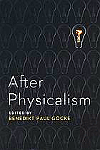 Benedikt Paul Göcke (ed.)
Benedikt Paul Göcke (ed.)
After Physicalism
(Notre Dame Press 2012)
A growing number of philosophers are arguing that the dominant physicalist paradigm in recent philosophy of mind has lost its force. To have Lowe, Foster, Plantinga, Swinburne, Hasker, Smith, and Robinson, among others, together under one cover, each recapitulating his well-known position in the debate, constitutes a remarkable collection of essays. See Notre Dame | Amazon | Google
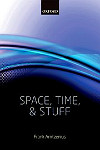 Frank Arntzenius
Frank Arntzenius
Space, Time, and Stuff
(Oxford 2012)
Arntzenius attempts to show that physics is geometry: that the fundamental structure of the physical world is purely geometrical structure. His main thrust is that there are good reasons to believe that spaces other than spacetime exist, and that it is the existence of these additional spaces that allows one to reduce all of physics to geometry. See Oxford | Amazon | Google
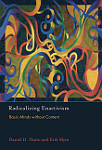 Daniel D. Hutto & Erik Myin
Daniel D. Hutto & Erik Myin
Radicalizing Enactivism: Basic Minds Without Content
(MIT 2012)
The authors promote the thesis that basic forms of mentality—intentionally directed cognition and perceptual experience—are best understood as embodied yet contentless. They oppose the widely-endorsed thesis that cognition always involves content and demonstrate the advantages of their approach for thinking about scaffolded minds and consciousness. See MIT | Amazon | Google
 Gideon Manning (ed.)
Gideon Manning (ed.)
Matter and Form in Early Modern Science and Philosophy
(Brill 2012)
Matter and form have been fundamental principles in natural science since Greek antiquity and their apparent rejection during the seventeenth century has typically been described as a precursor to the emergence of modern science. The contributors to this volume reconsider the fate of these principles and the complex history of their reception. See Brill | Amazon | Google
 Giulio Tononi
Giulio Tononi
Phi: A Voyage from the Brain to the Soul
(Pantheon 2012)
An exploration of consciousness as told by ‘Galileo,’ who ushered science in and now intends to make subjective experience a part of it as well. Galileo learns why some parts of the brain are important, why consciousness fades with sleep, and sees how these facts can be unified in a scientific theory that links consciousness to the notion of integrated information. See Pantheon | Amazon | Google
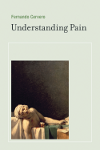 Fernando Cervero
Fernando Cervero
Understanding Pain: Exploring the Perception of Pain
(MIT 2012)
Pain is the most common reason for seeking medical attention but remains a biological enigma. Its effects are not just sensory but also emotional and it is not always protective. We cannot measure it objectively; a medical professional can gauge pain only by listening to what the patient says. In this book, Cervero brings us closer to understanding the meaning of pain. See MIT | Amazon | Google
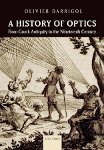 Olivier Darrigol
Olivier Darrigol
A History of Optics from Greek Antiquity to the Nineteenth Century
(Oxford 2012)
A history of optics from Greek theories of vision to the nineteenth-century wave theory of light. Darrigol shows how light gradually became the focus of a domain of physics that no longer referred to the eye. He also traces the competition between medium-based and corpuscular concepts of light and details the nineteenth-century flourishing of mechanical ether theories. See Oxford | Amazon | Google
 David Hodgson
David Hodgson
Rationality + Consciousness = Free Will
(Oxford 2012)
Hodgson contends that human rationality and consciousness together give us free will in a robust and indeterministic sense. They enable us to respond appositely to feature-rich gestalts of conscious experiences in ways not wholly determined by computational rules. He argues that this approach is consistent with science and considers its human implications. See Oxford | Amazon | Google
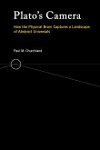 Paul M. Churchland
Paul M. Churchland
Plato’s Camera: How the Physical Brain Captures a Landscape of Abstract Universals
(MIT 2012)
Churchland offers a novel account of how the brain ‘takes a picture’ of the universe’s timeless categorical and dynamical structure. This process begins at birth and yields the background conceptual framework with which we subsquently interpret our sensory experience. How that framework is assembled is the motivating mystery and primary target of this book. See MIT | Amazon | Google
 Jim Holt
Jim Holt
Why Does the World Exist?
(Profile Books 2012)
Why is there something rather than nothing? Moving away from the narrower paths of Hitchens, Penrose and Hawking, celebrated essayist Jim Holt enters this fascinating debate with a lively and deeply informed narrative that traces our efforts to grasp the origins of everything. See Profile Books | Amazon | Google | Dwight Garner review | M. Roth review | F. Dyson review
 Duncan Pritchard
Duncan Pritchard
Epistemological Disjunctivism
(Oxford 2012)
Epistemological disjunctivism is a view on which perceptual knowledge is both factive and reflectively accessible to the agent. Such a view may seem incoherent but Pritchard argues that it offers a way through the impasse between epistemic externalism and internalism and provides a distinctive response to the problem of radical scepticism. See Oxford | Amazon | Google
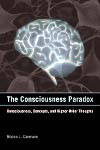 Rocco J. Gennaro
Rocco J. Gennaro
The Consciousness Paradox: Consciousness, Concepts, and Higher-order Thoughts
(MIT 2012)
A current statement of Gennaro’s version of the higher-order-thought theory of consciousness, developed over the last fifteen years. The book defends seven allegedly inconsistent theses, which form the paradox of the title. Gennaro’s integration of empirical and philosophical concerns will interest both philosophers and other scholars. See MIT | Google | Richard Brown review
 Christian Coseru
Christian Coseru
Perceiving Reality: Consciousness, Intentionality, and Cognition in Buddhist Philosophy
(Oxford 2012)
Combining insights from Buddhist phenomenology and epistemology, but also drawing on Husserl, Merleau-Ponty and recent analytic philosophy of mind and phenomenology, Coseru argues that perception is a direct mode of apprehension that is intentionally constituted and, in certain circumstances, represents a type of implicit knowing that precludes the possibility of error. See Oxford | Amazon | Google
 Oliver Sacks
Oliver Sacks
Hallucinations
(Picador 2012)
With his usual elegance, curiosity, and compassion, Oliver Sacks weaves together stories of his patients and of his own mind-altering experiences to show what hallucinations tell us about our brains, how they have influenced every culture’s folklore and art, and why the potential for hallucination is a vital part of the human condition. See Picador | Amazon | Google
 Alva Noë
Alva Noë
Varieties of Presence
(Harvard 2012)
The world shows up for us—it is present in thought and perception. But, Noë explains, it doesn’t show up for free. The world is not simply available; it is achieved rather than given. As with a painting in a gallery, the world has no meaning apart from our able engagement with it. We must show up, too, and bring along what knowledge and skills we’ve cultivated. See Harvard | Google
 D. Smithies & D. Stoljar (eds.)
D. Smithies & D. Stoljar (eds.)
Introspection and Consciousness
(Oxford 2012)
Introspection stands at the interface between questions in epistemology about self-knowledge and questions in the philosophy of mind about consciousness. Until recently, these questions were pursued largely in isolation from one another. In this collection, fourteen new essays and one reprinted essay investigate the relation between the two. See Oxford | Google
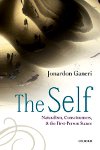 Jonardon Ganeri
Jonardon Ganeri
The Self: Naturalism, Consciousness, and the First-Person Stance
(Oxford 2012)
What is it to occupy a first-person stance? Is one’s first-personal idea in conflict with that of oneself as a physical being? Ganeri finds a new way to approach these questions, drawing inspiration in theories about consciousness and mind in first millennial India. This is the first book to draw together the Indian philosophical tradition with current philosophical work on the self. See Oxford | Google
 JeeLoo Liu & John Perry (eds.)
JeeLoo Liu & John Perry (eds.)
Consciousness and the Self: New Essays
(Cambridge 2012)
“I never can catch myself at any time without a perception, and never can observe any thing but the perception.” These famous words of Hume set the stage for Liu and Perry’s collection of essays on self-awareness and self-knowledge. This volume connects recent scientific studies with traditional issues explored by Descartes, Locke and Hume. See Cambridge | Google
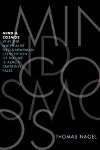 Thomas Nagel
Thomas Nagel
Mind and Cosmos: Why the Materialist Neo-Darwinian Conception of Nature Is Almost Certainly False
(Oxford 2012)
Thomas Nagel argues that the widely accepted world view of materialist naturalism is untenable. Moreover, if materialism cannot accommodate consciousness and other mind-related aspects of reality, then we must abandon a purely materialist understanding of nature in general, extending to biology, evolutionary theory, and cosmology. See Oxford | Google | Nagel’s summary | H. Allen Orr review
 Igor Aleksander & Helen Morton
Igor Aleksander & Helen Morton
Aristotle’s Laptop: The Discovery of Our Informational Mind
(World Scientific 2012)
Aristotle’s philosophy has shaped many of our beliefs and prejudices, including the way in which our mind appears to elude a scientific description. This book is about a scientific ingredient that was unknown to Aristotle: information. Would the course of the philosophy of mind have been different had Aristotle pronounced that the matter of mind was information? See World Scientific | Google
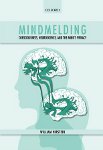 William Hirstein
William Hirstein
Mindmelding: Consciousness, Neuroscience, and the Mind’s Privacy
(Oxford 2012)
William Hirstein argues that it is possible for one person to directly experience the conscious states of another, by way of what he calls mindmelding. This would involve making just the right connections in two peoples’ brains. Drawing on a range of research from neuroscience and psychology, this book presents a highly original new account of consciousness. See Oxford | Google
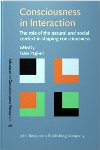 Fabio Paglieri (ed.)
Fabio Paglieri (ed.)
Consciousness in Interaction
(John Benjamins 2012)
This volume contains contributions from philosophers, psychologists, cognitive scientists, and historians of philosophy. It revolves around the idea that consciousness emerges from our skilled interactions with the natural and social context. The collection also traces the roots of the contemporary notion of consciousness in early modern philosophy. See John Benjamins | Google
 Daniel Bor
Daniel Bor
The Ravenous Brain
(Perseus 2012)
Neuroscientist Daniel Bor argues that consciousness evolved as an accelerated knowledge gathering tool, effectively an “idea factory.” This explains our brains’ ravenous appetite for information and its constant search for patterns. A controversial view of consciousness, Bor links cognition to creativity in an ingenious solution to one of science’s biggest mysteries. See Perseus | Google
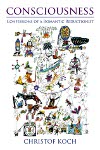 Christof Koch
Christof Koch
Consciousness: Confessions of a Romantic Reductionist
(MIT 2012)
This engaging book—part scientific overview, part memoir, part futurist speculation—describes Koch’s search for an empirical explanation for consciousness. Koch recounts not only the birth of the modern science of consciousness but also the subterranean motivation for his quest: his instinctual, if “romantic,” belief that life is meaningful. See MIT Press | Google | MIT audio interview
 Jesse Prinz
Jesse Prinz
The Conscious Brain
(Oxford 2012)
In this book, Prinz advances a theory of the psychological and neurophysiological correlates of consciousness. He argues that consciousness depends on attention, that all consciousness is perceptual, and that consciousness arises when populations of neurons fire in synchrony. He also responds to those who deny that consciousness could be a process in the brain. See Oxford | Google
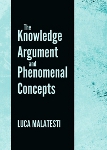 Luca Malatesti
Luca Malatesti
The Knowledge Argument and Phenomenal Concepts
(Cambridge Scholars 2012)
Responding to Frank Jackson’s knowledge argument, Malatesti develops a version of physicalism called modest reductionism, according to which the knowledge argument cannot prove that there are non-physical facts, but only that there are ways of thinking about colour experiences that are based on phenomenal concepts, different from scientific concepts. See Cambridge Scholars | Google

After Physicalism
(Notre Dame Press 2012)
A growing number of philosophers are arguing that the dominant physicalist paradigm in recent philosophy of mind has lost its force. To have Lowe, Foster, Plantinga, Swinburne, Hasker, Smith, and Robinson, among others, together under one cover, each recapitulating his well-known position in the debate, constitutes a remarkable collection of essays. See Notre Dame | Amazon | Google

Space, Time, and Stuff
(Oxford 2012)
Arntzenius attempts to show that physics is geometry: that the fundamental structure of the physical world is purely geometrical structure. His main thrust is that there are good reasons to believe that spaces other than spacetime exist, and that it is the existence of these additional spaces that allows one to reduce all of physics to geometry. See Oxford | Amazon | Google

Radicalizing Enactivism: Basic Minds Without Content
(MIT 2012)
The authors promote the thesis that basic forms of mentality—intentionally directed cognition and perceptual experience—are best understood as embodied yet contentless. They oppose the widely-endorsed thesis that cognition always involves content and demonstrate the advantages of their approach for thinking about scaffolded minds and consciousness. See MIT | Amazon | Google

Matter and Form in Early Modern Science and Philosophy
(Brill 2012)
Matter and form have been fundamental principles in natural science since Greek antiquity and their apparent rejection during the seventeenth century has typically been described as a precursor to the emergence of modern science. The contributors to this volume reconsider the fate of these principles and the complex history of their reception. See Brill | Amazon | Google

Phi: A Voyage from the Brain to the Soul
(Pantheon 2012)
An exploration of consciousness as told by ‘Galileo,’ who ushered science in and now intends to make subjective experience a part of it as well. Galileo learns why some parts of the brain are important, why consciousness fades with sleep, and sees how these facts can be unified in a scientific theory that links consciousness to the notion of integrated information. See Pantheon | Amazon | Google

Understanding Pain: Exploring the Perception of Pain
(MIT 2012)
Pain is the most common reason for seeking medical attention but remains a biological enigma. Its effects are not just sensory but also emotional and it is not always protective. We cannot measure it objectively; a medical professional can gauge pain only by listening to what the patient says. In this book, Cervero brings us closer to understanding the meaning of pain. See MIT | Amazon | Google

A History of Optics from Greek Antiquity to the Nineteenth Century
(Oxford 2012)

A history of optics from Greek theories of vision to the nineteenth-century wave theory of light. Darrigol shows how light gradually became the focus of a domain of physics that no longer referred to the eye. He also traces the competition between medium-based and corpuscular concepts of light and details the nineteenth-century flourishing of mechanical ether theories. See Oxford | Amazon | Google

Rationality + Consciousness = Free Will
(Oxford 2012)
Hodgson contends that human rationality and consciousness together give us free will in a robust and indeterministic sense. They enable us to respond appositely to feature-rich gestalts of conscious experiences in ways not wholly determined by computational rules. He argues that this approach is consistent with science and considers its human implications. See Oxford | Amazon | Google

Plato’s Camera: How the Physical Brain Captures a Landscape of Abstract Universals
(MIT 2012)

Churchland offers a novel account of how the brain ‘takes a picture’ of the universe’s timeless categorical and dynamical structure. This process begins at birth and yields the background conceptual framework with which we subsquently interpret our sensory experience. How that framework is assembled is the motivating mystery and primary target of this book. See MIT | Amazon | Google

Why Does the World Exist?
(Profile Books 2012)
Why is there something rather than nothing? Moving away from the narrower paths of Hitchens, Penrose and Hawking, celebrated essayist Jim Holt enters this fascinating debate with a lively and deeply informed narrative that traces our efforts to grasp the origins of everything. See Profile Books | Amazon | Google | Dwight Garner review | M. Roth review | F. Dyson review

Epistemological Disjunctivism
(Oxford 2012)
Epistemological disjunctivism is a view on which perceptual knowledge is both factive and reflectively accessible to the agent. Such a view may seem incoherent but Pritchard argues that it offers a way through the impasse between epistemic externalism and internalism and provides a distinctive response to the problem of radical scepticism. See Oxford | Amazon | Google

The Consciousness Paradox: Consciousness, Concepts, and Higher-order Thoughts
(MIT 2012)

A current statement of Gennaro’s version of the higher-order-thought theory of consciousness, developed over the last fifteen years. The book defends seven allegedly inconsistent theses, which form the paradox of the title. Gennaro’s integration of empirical and philosophical concerns will interest both philosophers and other scholars. See MIT | Google | Richard Brown review

Perceiving Reality: Consciousness, Intentionality, and Cognition in Buddhist Philosophy
(Oxford 2012)
Combining insights from Buddhist phenomenology and epistemology, but also drawing on Husserl, Merleau-Ponty and recent analytic philosophy of mind and phenomenology, Coseru argues that perception is a direct mode of apprehension that is intentionally constituted and, in certain circumstances, represents a type of implicit knowing that precludes the possibility of error. See Oxford | Amazon | Google

Hallucinations
(Picador 2012)
With his usual elegance, curiosity, and compassion, Oliver Sacks weaves together stories of his patients and of his own mind-altering experiences to show what hallucinations tell us about our brains, how they have influenced every culture’s folklore and art, and why the potential for hallucination is a vital part of the human condition. See Picador | Amazon | Google

Varieties of Presence
(Harvard 2012)
The world shows up for us—it is present in thought and perception. But, Noë explains, it doesn’t show up for free. The world is not simply available; it is achieved rather than given. As with a painting in a gallery, the world has no meaning apart from our able engagement with it. We must show up, too, and bring along what knowledge and skills we’ve cultivated. See Harvard | Google

Introspection and Consciousness
(Oxford 2012)
Introspection stands at the interface between questions in epistemology about self-knowledge and questions in the philosophy of mind about consciousness. Until recently, these questions were pursued largely in isolation from one another. In this collection, fourteen new essays and one reprinted essay investigate the relation between the two. See Oxford | Google

The Self: Naturalism, Consciousness, and the First-Person Stance
(Oxford 2012)
What is it to occupy a first-person stance? Is one’s first-personal idea in conflict with that of oneself as a physical being? Ganeri finds a new way to approach these questions, drawing inspiration in theories about consciousness and mind in first millennial India. This is the first book to draw together the Indian philosophical tradition with current philosophical work on the self. See Oxford | Google

Consciousness and the Self: New Essays
(Cambridge 2012)
“I never can catch myself at any time without a perception, and never can observe any thing but the perception.” These famous words of Hume set the stage for Liu and Perry’s collection of essays on self-awareness and self-knowledge. This volume connects recent scientific studies with traditional issues explored by Descartes, Locke and Hume. See Cambridge | Google

Mind and Cosmos: Why the Materialist Neo-Darwinian Conception of Nature Is Almost Certainly False
(Oxford 2012)
Thomas Nagel argues that the widely accepted world view of materialist naturalism is untenable. Moreover, if materialism cannot accommodate consciousness and other mind-related aspects of reality, then we must abandon a purely materialist understanding of nature in general, extending to biology, evolutionary theory, and cosmology. See Oxford | Google | Nagel’s summary | H. Allen Orr review

Aristotle’s Laptop: The Discovery of Our Informational Mind
(World Scientific 2012)
Aristotle’s philosophy has shaped many of our beliefs and prejudices, including the way in which our mind appears to elude a scientific description. This book is about a scientific ingredient that was unknown to Aristotle: information. Would the course of the philosophy of mind have been different had Aristotle pronounced that the matter of mind was information? See World Scientific | Google

Mindmelding: Consciousness, Neuroscience, and the Mind’s Privacy
(Oxford 2012)
William Hirstein argues that it is possible for one person to directly experience the conscious states of another, by way of what he calls mindmelding. This would involve making just the right connections in two peoples’ brains. Drawing on a range of research from neuroscience and psychology, this book presents a highly original new account of consciousness. See Oxford | Google

Consciousness in Interaction
(John Benjamins 2012)
This volume contains contributions from philosophers, psychologists, cognitive scientists, and historians of philosophy. It revolves around the idea that consciousness emerges from our skilled interactions with the natural and social context. The collection also traces the roots of the contemporary notion of consciousness in early modern philosophy. See John Benjamins | Google

The Ravenous Brain
(Perseus 2012)
Neuroscientist Daniel Bor argues that consciousness evolved as an accelerated knowledge gathering tool, effectively an “idea factory.” This explains our brains’ ravenous appetite for information and its constant search for patterns. A controversial view of consciousness, Bor links cognition to creativity in an ingenious solution to one of science’s biggest mysteries. See Perseus | Google

Consciousness: Confessions of a Romantic Reductionist
(MIT 2012)

This engaging book—part scientific overview, part memoir, part futurist speculation—describes Koch’s search for an empirical explanation for consciousness. Koch recounts not only the birth of the modern science of consciousness but also the subterranean motivation for his quest: his instinctual, if “romantic,” belief that life is meaningful. See MIT Press | Google | MIT audio interview

The Conscious Brain
(Oxford 2012)
In this book, Prinz advances a theory of the psychological and neurophysiological correlates of consciousness. He argues that consciousness depends on attention, that all consciousness is perceptual, and that consciousness arises when populations of neurons fire in synchrony. He also responds to those who deny that consciousness could be a process in the brain. See Oxford | Google

The Knowledge Argument and Phenomenal Concepts
(Cambridge Scholars 2012)
Responding to Frank Jackson’s knowledge argument, Malatesti develops a version of physicalism called modest reductionism, according to which the knowledge argument cannot prove that there are non-physical facts, but only that there are ways of thinking about colour experiences that are based on phenomenal concepts, different from scientific concepts. See Cambridge Scholars | Google
Menu
 What’s a logical paradox?
What’s a logical paradox? Achilles & the tortoise
Achilles & the tortoise The surprise exam
The surprise exam Newcomb’s problem
Newcomb’s problem Newcomb’s problem (sassy version)
Newcomb’s problem (sassy version) Seeing and being
Seeing and being Logic test!
Logic test! Philosophers say the strangest things
Philosophers say the strangest things Favourite puzzles
Favourite puzzles Books on consciousness
Books on consciousness Philosophy videos
Philosophy videos Phinteresting
Phinteresting Philosopher biographies
Philosopher biographies Philosopher birthdays
Philosopher birthdays Draft
Draftbarang 2009-2024  wayback machine
wayback machine
 wayback machine
wayback machine